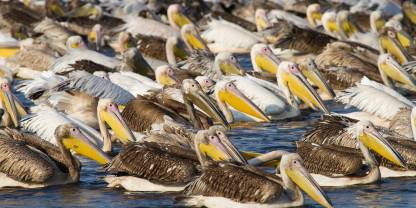Safety
Nkasa Rupara National Park (formerly Mamili National Park) is safe to visit in our opinion, especially on an organized safari. However, only experienced 4x4 drivers should consider traveling here independently. Self-drive visitors need a fully-equipped 4x4 vehicle and should ideally travel in convoys of two or more vehicles. The roads are bad throughout the year and virtually impassable in the Wet season (November to April), when the park can become flooded. Consider renting a satellite phone with your vehicle.
For the most up-to-date information about safety in Namibia, check the relevant travel advisories (see the ‘Governments’ Travel Advice for Namibia’ link below).
- General Travel Safety Precautions
- Cities & Urban Areas: Safety Precautions
- Safety & Security – Namibia
- Governments’ Travel Advice for Namibia
Malaria & Vaccinations
Consult your travel doctor about recommended vaccinations before your trip to Namibia. Malaria is present year-round, but the highest risk is during the Wet season (November to April). Malaria prevention includes taking antimalarial medication, covering up in the evening and using a mosquito repellent (those containing DEET are most effective).
Wildlife Viewing
Wildlife viewing in Nkasa Rupara is very safe as long as you follow the rules of the park. If you are on an organized tour, listen to your guide’s instructions. You can also read the ‘Wildlife Viewing Safety Precautions’ below for more information.

